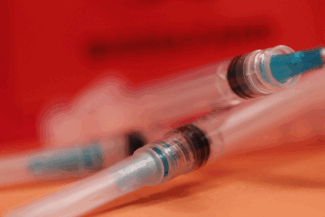
Unsafe injection practices can be a serious threat to a patient’s health. Health care providers (doctors, nurses, and anyone providing injections) should never reuse a needle or syringe from one patient to another. Both the needle and syringe must be discarded once they have been used. Reusing a needle or syringe can put patients in danger of getting hepatitis C, hepatitis B, and HIV.
